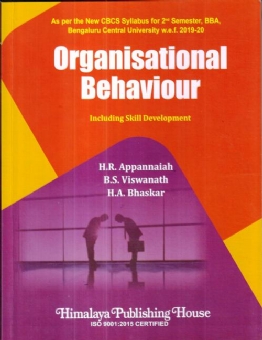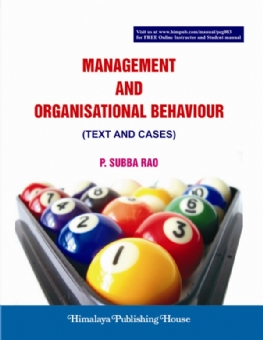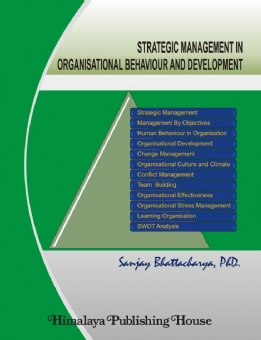Organisational functioning is compex. No single model or theory of organisational behaviour has emerged as the best or most practical. Managers must be able to probe and diognise organisational situations when they attempt to understand, interpret and predict behaviour. Readers/Managers should be able to explain, predict and evaluate and modify human behaviour at work. This largely depends upon knowledge, Skill and experience of the manager in handling large group of people in diverse situations. This warrants managers to study deeply the various issues of organisational behaviour and management.
Organisations are composed of number of individuals working independently or collectively in teams. Number of such teams makes a departments and number of such departments makes an organisation. It is a formal structure and all departments have to function in acoordinated manner to achieve the organisational objective/goals. This demands the study of organisational behaviour in detail.
The study of organisational behaviour relates to the expected behaviour of an individuals as well as the groups in the organisation. The study mainly focuses on human factor, which is a contributory to productivity of individuals, groups and organisation as a whole.
The value system, emotional intelligence, organisational culture, job design and the work environments are important contributing factors in determining human behaviour in organisational setting. Besides these factors which have impact on productivity of the organisations, focus of OB also spans to organisational change and development.
Many organisational and behavioural issues are studied under OB. Issues such as study of different organisational structures, individual behaviour (attitude, Perception, learning, personality), Movtivation, leadership, group and team dynamics, organisational change and development, managing conflict and stress, impact of culture on OB and such other issues related to organisation’s effective management constitute the subject matter of organisational behaviour. Psychology, Sociology, Political science, Social psychology and Anthropology are the contributing fields to OB.
Most of the business and managements education courses (B.Com, BBA, MBA) Compulsorily prescribe“Organisational Behaviour”as a subjects of study. Bengaluru Central University has prescribed OB as a subjectof study in its BBA course. This work “Organisational Behaviour”, besides covering various issues of OB. This is written in an easily understandable language. Students and other readers can understand the basics of OB by reading this book
Contents –
Unit I: Organisational Behaviour
1. Overview of Organisational Behaviour
Unit II: Foundations of Individual Behaviour
2. Foundations of Individual Behaviours
3. Personality
4. Preception
5. Learning And Behaviour Modification
6. Attitude
Unit III: Motivation And Leadership
7. Motivation
8. Leadership
Unit IV: Group And Team Dynamics
9. Group And Team Dynamics
10. Team Dynamics
11. Conflict Management
12. Interpersonal Relationship (IRP)
Unit V: Organisational Change
13. Organisational Change
14. Organisational Development
Skill developments






